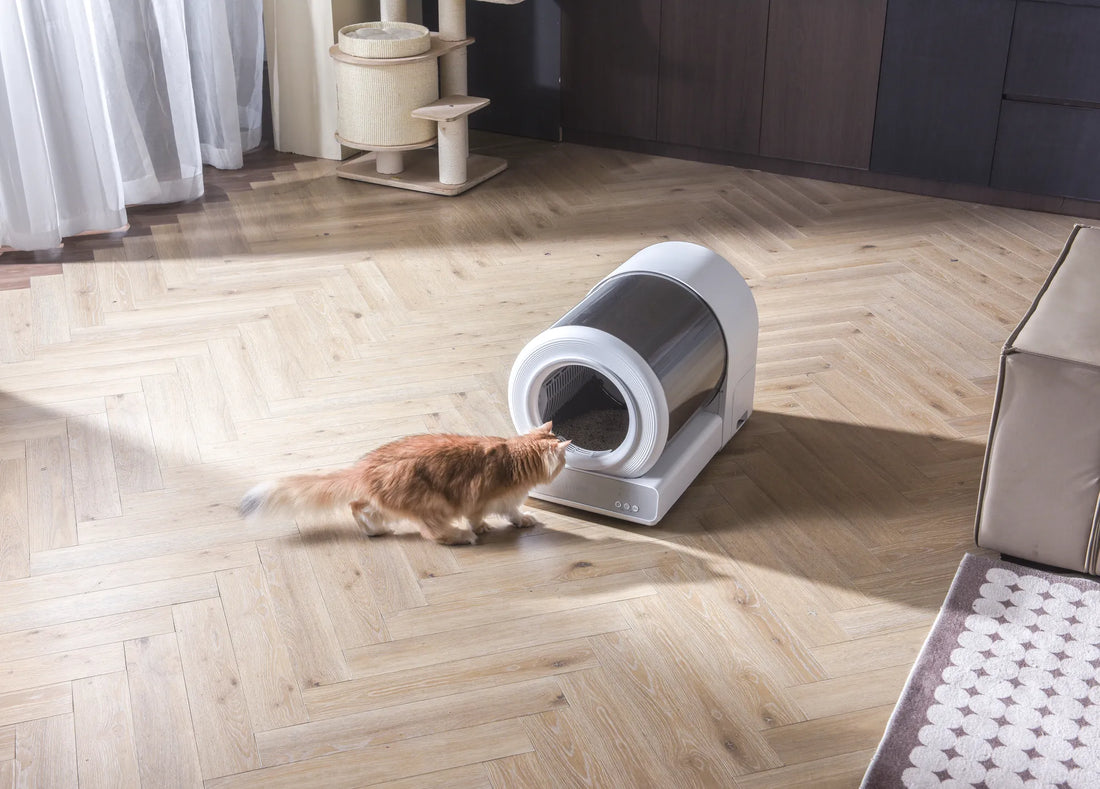If you're a cat owner, you know how frustrating it can be when your male cat stops using the litter box. This behavior can lead to unpleasant messes and stress for both you and your feline friend. Understanding the underlying reasons for this issue is crucial to finding a solution and restoring harmony in your home.
Common Reasons Why Male Cats Avoid the Litter Box
There are several reasons why your male cat might be avoiding the litter box. These can range from medical issues to environmental factors. Here are some of the most common causes:
Medical Issues
One of the first things to consider is whether your cat is experiencing any medical problems. Urinary tract infections, bladder stones, and other health issues can make it painful for your cat to urinate, causing them to associate the litter box with discomfort. If your cat is straining to urinate or producing only small amounts of urine, it's essential to consult a veterinarian immediately.
Stress and Anxiety
Cats are sensitive creatures, and changes in their environment can lead to stress and anxiety. Moving to a new home, introducing a new pet, or even rearranging furniture can disrupt your cat's routine and cause them to avoid the litter box. Identifying and addressing the source of stress can help resolve the issue.
Litter Box Preferences
Cats can be quite particular about their litter box. If the box is too small, too dirty, or filled with a type of litter your cat doesn't like, they may choose to go elsewhere. Ensuring the litter box is clean, spacious, and filled with a litter your cat prefers can make a big difference.
Territorial Marking
Male cats, especially those that are not neutered, may engage in territorial marking. This behavior involves spraying urine on vertical surfaces to mark their territory. Neutering your cat can help reduce this behavior, but it's also important to address any underlying territorial issues.
How to Encourage Your Male Cat to Use the Litter Box
Once you've identified the potential cause of your cat's litter box avoidance, you can take steps to encourage them to use it again. Here are some practical solutions:
Consult a Veterinarian
If you suspect a medical issue, the first step is to consult a veterinarian. They can perform a thorough examination and recommend appropriate treatment. Addressing any health problems is essential to resolving litter box issues.
Create a Stress-Free Environment
Reducing stress and anxiety in your cat's environment can help them feel more comfortable using the litter box. Provide a quiet, safe space for your cat, and try to minimize changes in their routine. Using pheromone diffusers or calming supplements can also help reduce stress.
Optimize the Litter Box Setup
Ensure the litter box is clean, spacious, and filled with a litter your cat prefers. Some cats prefer unscented litter, while others may prefer a specific texture. Experiment with different types of litter to find what your cat likes best. Additionally, make sure the litter box is in a quiet, accessible location.
Neuter Your Cat
If your male cat is not neutered, consider having the procedure done. Neutering can reduce territorial marking and other undesirable behaviors. It's also beneficial for your cat's overall health and well-being.
Provide Multiple Litter Boxes
If you have multiple cats, it's essential to provide enough litter boxes for each one. The general rule is to have one litter box per cat, plus one extra. This ensures that each cat has access to a clean litter box and reduces competition or territorial disputes.
Preventing Future Litter Box Issues
Once you've resolved the current issue, it's important to take steps to prevent future problems. Here are some tips for maintaining a positive litter box experience for your male cat:
Regular Cleaning
Keep the litter box clean by scooping it daily and changing the litter regularly. A clean litter box is more inviting to your cat and reduces the risk of them avoiding it.
Monitor Your Cat's Health
Regular veterinary check-ups can help catch any potential health issues early. Keeping your cat healthy is key to preventing litter box problems.
Maintain a Consistent Routine
Cats thrive on routine, so try to keep their environment and daily schedule as consistent as possible. This helps reduce stress and anxiety, making it more likely that your cat will use the litter box.
Provide Enrichment
Ensure your cat has plenty of mental and physical stimulation. Providing toys, scratching posts, and interactive playtime can help reduce stress and prevent behavioral issues, including litter box avoidance.
Dealing with a male cat that's not using the litter box can be challenging, but with patience and the right approach, you can resolve the issue and restore peace in your home. By understanding the potential causes and implementing practical solutions, you can help your feline friend feel comfortable and secure in their environment. Remember, a happy cat means a happy home!













